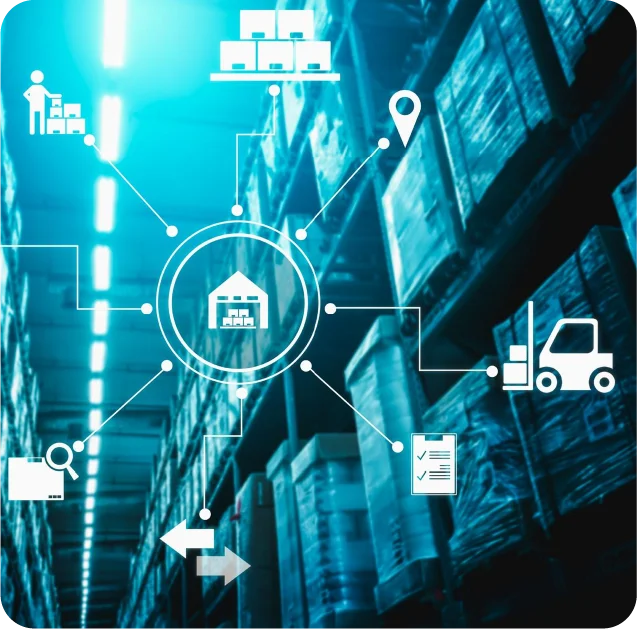VR For Logistics
VR In The Logistics Industry

Benefits Of VR Development For Logistics

Improved Visibility

Enhanced Training Efficiency

Streamlined Operations

Optimized Route Planning

Enhanced Customer Experience
Real-World Examples Of VR In Logistics Use Cases




7 Industries Transformed By VR

Manufacturing

Retail

Automotive

Entertainment & Media

Healthcare

Banking & Finance

Real Estate
Our VR Platforms Demo
Explore Our Different VR Solutions For Various Industries
Know More About How We Can Help You Improve Productivity & Efficiency While Ensuring An Engaged Workforce.
How Does Shamla Tech Contribute To VR Development For The Logistics Industry?
FAQ
VR is on the verge of transforming the logistics industry, introducing transformative elements that streamline processes, elevate customer experiences, and extend market horizons. Within this shift, innovative features driven by VR development for logistics play a pivotal role. Virtual warehouses, a key highlight, provide rapid global access to goods, ensuring swifter and more efficient supply chain operations.
Automated ordering processes, another VR-driven facet, substantially reduce wait times, contributing to the overall efficiency of logistics operations. Beyond this, VR simplifies intermodal transport, easing the movement of goods across diverse transportation modes. This streamlined intermodal capability translates into optimized deliveries across extensive distances, curtailing transit times and realizing substantial cost efficiencies for logistics operations. The integration of VR into logistics processes marks a paradigm shift, promising not only enhanced efficiency in the movement of goods but also an enriched experience for businesses and customers alike.
VR in logistics refers to the integration of Virtual Reality technology into various aspects of the logistics sector, providing immersive training experiences for professionals. Leveraging VR headsets and simulations, enhances efficiency in warehouse operations and transportation management, offering realistic scenarios. This approach not only reduces training costs but also ensures a skilled and well-prepared workforce. Moreover, VR facilitates the visualization and optimization of supply chain processes, granting logistics managers real-time insights for informed decision-making. As technology advances, VR in logistics becomes a pivotal tool for transforming operations and improving overall responsiveness in the logistics industry.
Integrating Virtual Reality (VR) into the logistics industry presents a highly advantageous and innovative proposition. VR technology offers an immersive solution to enhance various aspects of logistics operations. By creating digital twins of physical processes, VR provides real-time monitoring, enabling better visibility into the supply chain, reducing errors, and ensuring timely deliveries. VR facilitates streamlined warehouse management, offering a virtual representation of physical storage spaces for efficient organization and quick retrieval of products. Additionally, VR-driven automation in order fulfillment processes reduces manual errors, ensuring accurate and swift handling of customer orders, thereby improving operational efficiency.
Furthermore, VR plays a crucial role in risk management by allowing logistics professionals to simulate and analyze potential disruptions. Overall, the incorporation of VR in logistics is a strategic move that brings about heightened efficiency, improved visibility, and advanced operational capabilities
The immersive nature of VR simulations allows for comprehensive tracking and analysis. Logistics professionals can virtually inspect warehouses, monitor inventory levels, and identify potential challenges in the logistics pipeline. This level of visibility is instrumental in optimizing the supply chain and mitigating the risk of delays. With the ability to virtually walk through each step of the logistics process, professionals can promptly respond to emerging challenges. This agile responsiveness is crucial in a dynamic logistics landscape, where quick and informed decisions contribute to the seamless flow of goods. In essence, VR technology emerges as a powerful ally, offering a heightened level of supply chain visibility that goes beyond traditional methods, ensuring a more resilient and adaptable logistics network.
VR-driven automation brings a paradigm shift to order fulfillment in logistics by introducing advanced technologies to streamline processes. Virtual Reality optimizes warehouse operations, employing immersive simulations for efficient order picking, packing, and inventory management. This technology enhances accuracy and reduces manual errors, leading to more precise order fulfillment. Automated systems driven by VR minimize operational costs and significantly increase the speed of order processing. Logistics companies embracing VR-driven automation benefit from enhanced efficiency, reduced expenses, responsive supply chain operations, and improved overall performance in their order fulfillment processes.
We Redefine The Stature Of Business With Robust And Exceptional Blockchain Base





